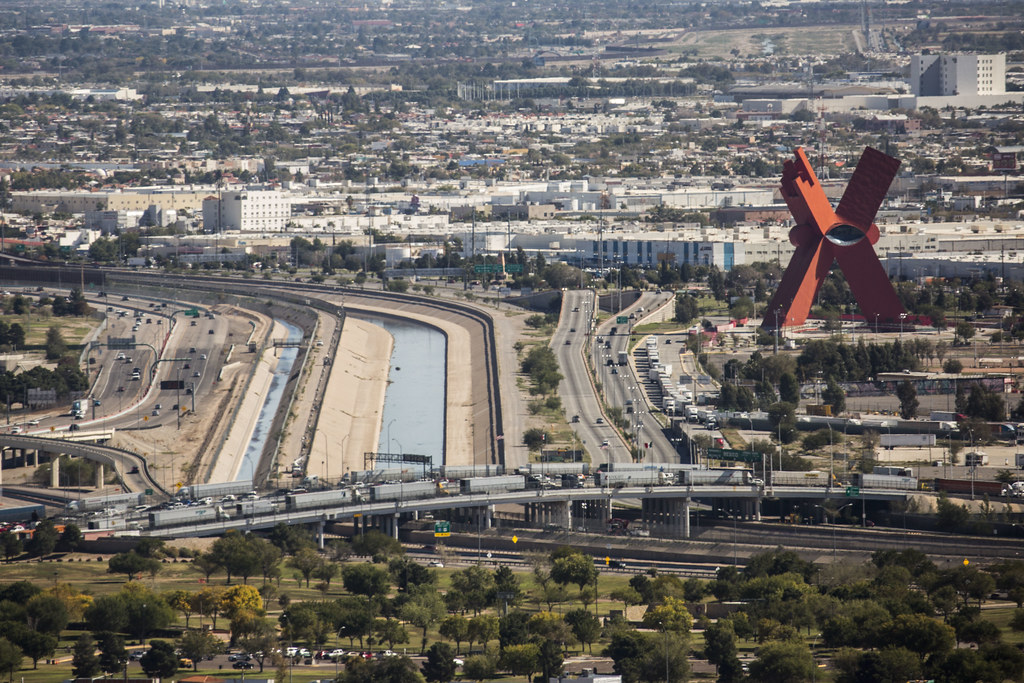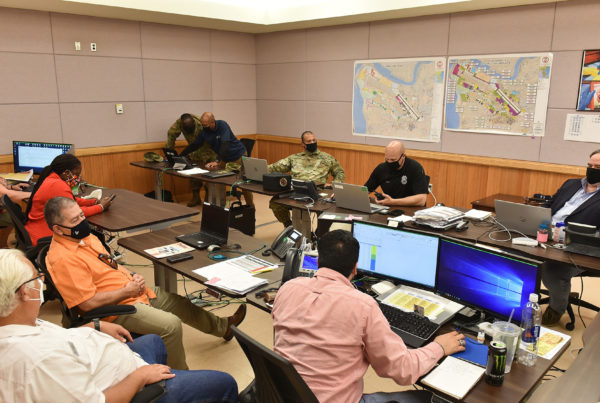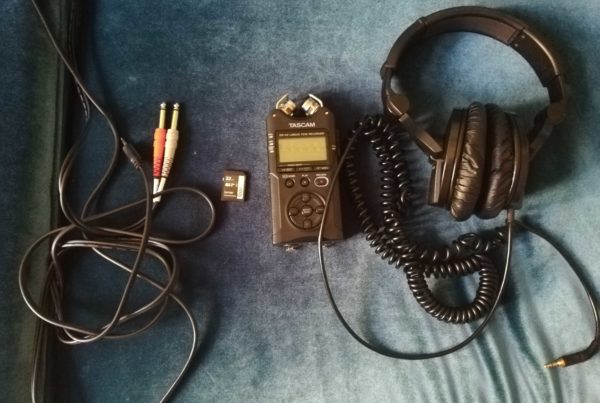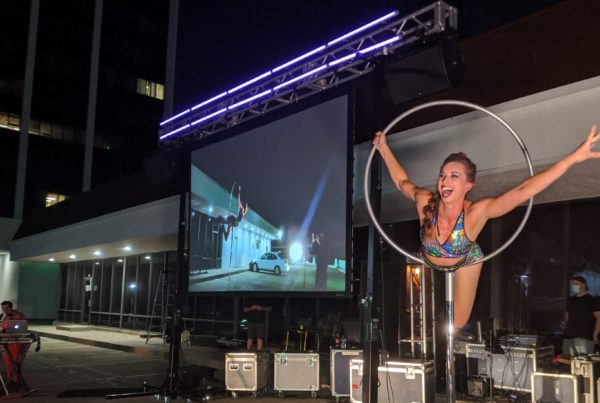From El Paso Matters:
As testing increases in Texas contact tracing is the next critical step to prevent the spread of COVID-19 and on the U.S. – Mexico border those close contacts can include relatives, friends and coworkers in two countries. The El Paso Department of Public Health faces that challenge on a daily basis.
“This morning I contacted the health authorities in Juarez to refer them individuals that were exposed to cases that are in El Paso,” said Fernando Gonzalez, lead epidemiologist for the El Paso Department of Public Health.
The U.S. and Mexico extended a temporary shutdown of the border to all but essential travel imposed in March to contain virus to contain the virus. But a significant number of U.S. citizens, dual citizens, and legal residents still cross back and forth to visit relatives and do essential jobs in both countries.
“We have cases in El Paso, some have been hospitalized but some have had contact before getting sick with relatives or friends in Juarez,” explained Gonzalez.
El Paso has increased the number of contact tracers from eight to 150 to handle COVID-19 cases. In this border region dual language skills are critical. Luis Jauregui, a contact tracer, demonstrated the process of getting information from someone who has tested positive for COVID-19.
“I’d like to ask you some questions to see how you’re doing and to identify family or other loved ones around you that we should be keeping an eye on,” Jaurgui asks in a cheerful voice.
He asks people for the names of all members of their household as well as close contacts who likely were exposed to the virus and need to self-isolate to keep from spreading COVID-19 to more people. In El Paso more than half of all cases are the result of close contact from relatives, friends and coworkers. When those ties extend across the border health authorities in El Paso reach out to Juarez to follow those cases in Mexico.
“We provide information to our colleagues in Juarez not only for active or infectious cases but also with contacts,” explained Gonzalez. “We have cases in El Paso, some have been hospitalized but some have had contact before getting sick with relatives or friends in Juarez.”
The health departments in the sister cities have long collaborated to prevent and contain a range of infectious diseases on the border. The pandemic though is creating new pressures in both El Paso and Ciudad Juarez.
“I understand that historically we’ve had great relations with the public health department there but in the trying times of a pandemic, it tests the strength of those relationships very quickly,” saidinfectious disease expert and Chief Medical Officer at Del Sol Medical Center in El Paso Ogechika Alozie.
Each border city has to contend with layers of local, state and federal governments and different schedules for restarting economic activities. As Texas reopens more businesses, drive through testing is now ramping up in El Paso.
Mexico tests at a much lower rate and in Ciudad Juarez so the bulk of testing has been at hospitals and health clinics. The lag time between identifying a positive case and contact tracing can have serious consequences.
“That’s probably a positive that was infected two weeks ago. When we see people showing up in our emergency room that’s probably four weeks ago. And when we unfortunately do have deaths that was probably six to eight weeks ago. So, we’re always behind the eight ball in terms of the data we have and how we respond,” said Alozie
In Ciudad Juarez global health expert Dr. Alejandro Diaz Villalobos shares that concern. He refers to contact tracing as a basic “stepping stone” for containing COVID-19.
“The more information and reliable information we have the better the outcome so that’s basically the challenge: information. We need to know who, where and how, everything,” said Diaz.
He is especially worried about having adequate protocols in place before maquiladoras or multinational manufacturing plants in reopen in Ciudad Juarez open on June 1st. Some of those factories have been involved in clusters of cases that resulted in deaths.
Testing is so low Ciudad Juarez contact tracers also follow up with what health officials refer to as “suspected” Covid-19 cases.
Even as deaths climb to 229 in Ciudad Juarez, the number of confirmed cases has been steady but slow and as Tuesday was 942.
In El Paso meanwhile as testing increases so have the confirmed cases to 2393 with 60 confirmed deaths and a growing number of hospitalizations according to health authorities.
As cases spike in each country, contract tracers are in a race to track down people who may have been exposed people in both countries. One individual recently had multiple contacts in both El Paso and Ciudad Juarez
“Today one of the binationals was 10 contacts,” said Gonzalez.
If you found the reporting above valuable, please consider making a donation to support it here. Your gift helps pay for everything you find on texasstandard.org and KUT.org. Thanks for donating today.















